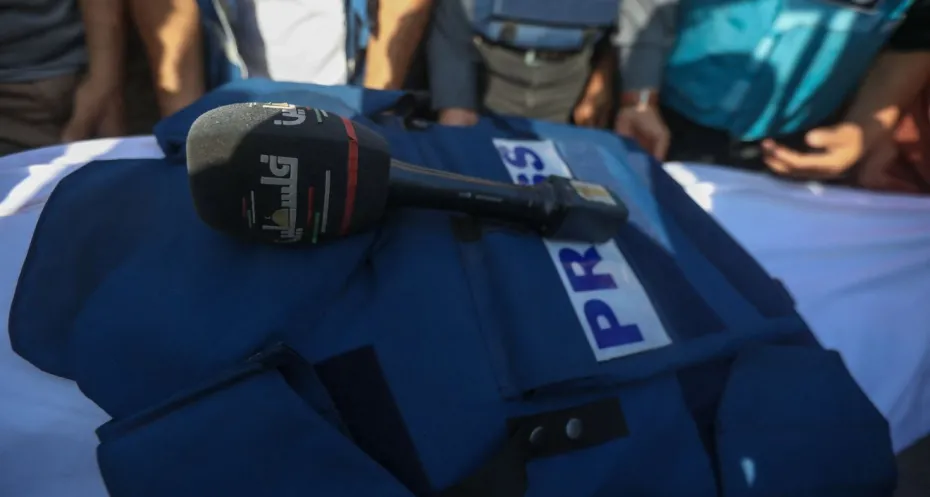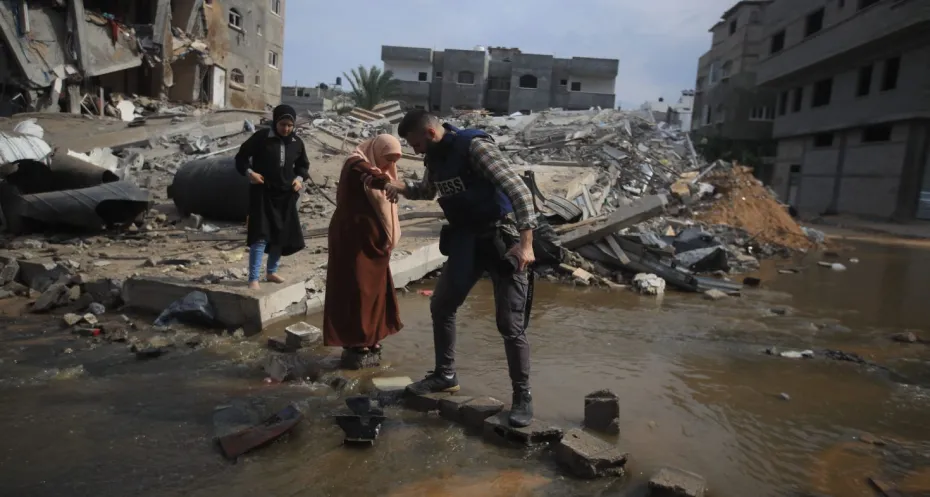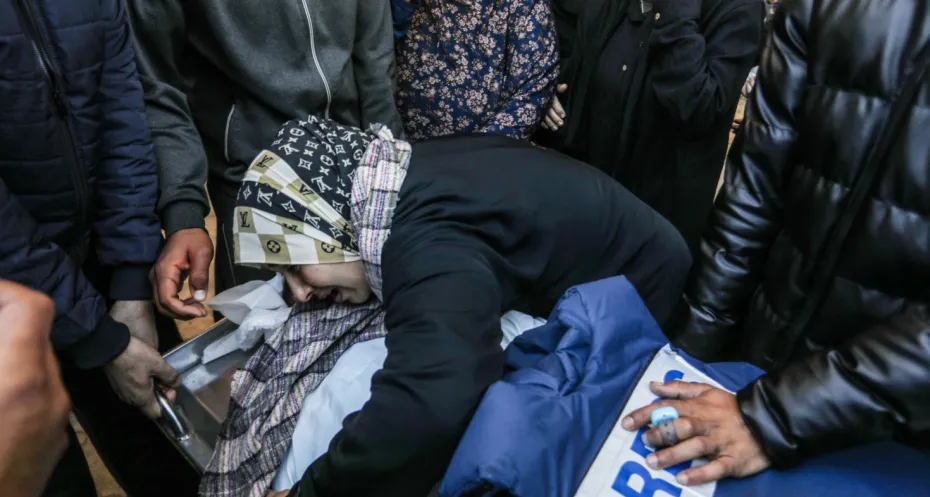Our eyes in Gaza: continued unprecedented violence against journalists

Three days ago, Al Jazeera journalist Samer Abudaqa was killed while reporting. He was left bleeding to death for over 5 hours, as ambulances and rescue workers were unable to reach him because it was too dangerous to enter the area. He is one of 95 journalists who have been killed in Palestine, Israel, and Lebanon as of 21 March 2024.
We are well into the third month of violence in Gaza; the third month of unprecedented violence against journalists. On a daily basis, journalists are working under immensely difficult circumstances and risk their lives to report on what's happening. They are exposed to continuous bombing, face a shortage of basic needs including food and water, have to work around electricity outages and communication black-outs, and are under great mental distress as their family, friends, and colleagues are being killed.
Furthermore, there is increasing concern about deliberate attacks against journalists, following the Reuters investigation on the killing of journalist Issam Abdallah in Lebanon. The evidence points to the Israel Defence Forces having intentionally targeted a group of journalists who were clearly identified as media.
Current circumstances
A few days ago, Free Press Unlimited heard from Amjad Yaghi, a Palestinian journalist based in Gaza reporting for Al-Araby Al-Jadeed.
[There is] the difficulties of daily living, since the journalist is a member of the Gazan community. Everything that this community is exposed to, including starvation, lack of resources, clean water, hygiene, and good food, we also suffer from. We miss all these life elements that keep us going.
He also described the continuous fear that journalists in Gaza have for their family members: "[There is] the constant fear that the journalist lives with, as journalists also lost members of their family. For example, I lost members of my family, and I lost my uncle. I am forced to work under psychological and moral pressure in addition to financial pressure."
The social media posts from journalists in Gaza highlight how the situation is getting increasingly desperate. Palestinian filmmaker Bisan Owda starts her video reports with "This is Bisan from Gaza, I am still alive". Photojournalist Motaz Azaiza writes that "the phase of risking your life to show what’s happening is now over and the phase of trying to survive has started". Local Palestinian organizations that Free Press Unlimited heard from underlined the severe psychological distress and fatigue that Palestinian journalists are suffering from, compounded by their inability to take temporary respite from reporting due to the closed borders.
Ceasefire
An immediate ceasefire, and assurance to protect journalists according to international humanitarian law, is needed to guarantee the safety of the journalists working in Gaza and ensure that we continue to receive reliable information. Nothing else can protect journalists from the constant bombing, shelling, attacks, and threats that they face. Amjad Yaghi explained to us that "the risks to which journalists in Gaza are exposed are [...] due to the lack of safety in any area in the Strip, even if it is an internationally protected area under any flag or any international organizations." Similarly, in November, Palestinian journalist Plestia Alaqad wrote on Instagram:
I used to always wear my press vest and helmet, but lately I stopped wearing them. I don't feel safe in Gaza no matter what, even while sleeping I don't feel safe, but especially when wearing [my] press vest and helmet I don't feel safe. I hope this nightmare ends soon, I hope we don't lose anymore journalists.
Eyes in Gaza
Our eyes in Gaza are mostly local Palestinian journalists. Foreign journalists have consequently been denied access to enter the Gaza strip. The very few foreign journalists who have been able to enter Gaza are almost all embedded with the Israeli army, submitted to strict restrictions, and blatantly censored. Only four days ago, a first independent report by Western journalists from CNN was published in defiance of the media ban. Furthermore, in Israel too, journalists face serious threats when asking critical questions about the large-scale violence or expressing empathy or solidarity with the people of Gaza. This poses a severe threat to reliable and independent information. With every journalist that is killed, we lose a window into Gaza. For every journalist who is still alive but unable to report because of the continuous threats, attacks, and fight for survival, we lose another set of eyes into Gaza. No one else can provide us with the information that they do.
Without independent journalism citizens in Gaza are deprived of the information they need to survive, such as safe zones, evacuation routes, and targeted areas. Furthermore, no independent journalism in Gaza affects us all. The inevitable result is that the entire world will have no access to reliable information amid the humanitarian catastrophe in Gaza.
We reiterate our calls to the international community:
- To do their utmost to achieve an immediate ceasefire.
- To ensure that journalists covering the war are treated in accordance with International Humanitarian Law and allow them to freely enter and exit the Gaza strip and offer them the necessary protection.
- To refrain from restricting funding and support to media and civil society during this time of crisis, as their work is essential to counterbalance disinformation and propaganda.
- To demand an end to the impunity for journalist killings and murders in Israel, Palestine, and Lebanon and ensure independent, transparent and credible investigations are initiated.



